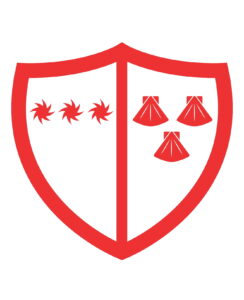History
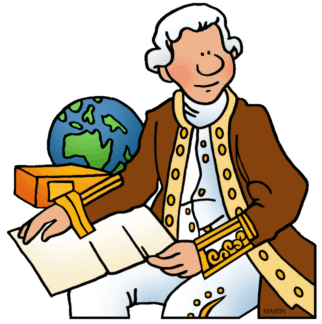
At Leverton Primary School, we aim to teach a history curriculum which stimulates an interest and detailed understanding of past events and how they impact upon current lives.
Children learn the importance of chronology and how this helps them identify key events which have influenced their lives today. Using historical studies, children develop the skills needed for the future. Our children learn to identify, compare and contrast information by examining a range of historical artefacts, to give justified opinions and reach logical conclusions. Interaction and collaborative learning are at the centre of this process to produce citizens ready for a democratic society in which they feel confident and have the skills to participate.
Through history, links are made with citizenship to develop an understanding and appreciation of their identity and cultural background, whilst building tolerance and patience towards other cultures in our multi-cultural society. Local history studies support them in understanding how and why their local areas have altered, as well as the benefits or disadvantages of this.
Skills Progression
Nursery History Learning Goals
- Use simple words to talk about the passing of time.
- Remember and talk about significant events in their own lives.
- Recognise and describe special times or events for family or friends.
- Identify simple similarities and differences.
Reception History Learning Goals
- Use simple words to talk about the passing of time.
- Talk about past and present events in their own lives and in the lives of family members.
- Identify and talk about simple similarities and differences.
- Sequence pictures to show time order.
- Listen to and recall simple Historical stories.
Year 1 History Learning Goals
By the end of Year 1 our children, working as young historians, will have demonstrated they can effectively use the range of simple historical techniques, enquiry skills, contemporaneous evidence and subject vocabulary detailed in our schemes of work to:
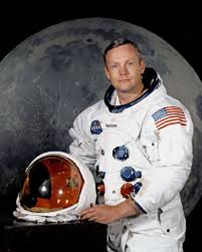
- Begin the process of establishing a simple sense of chronology and mastery of the language associated with identifying and describing the passing of time.
- Recognise and describe the achievements of famous national and international explorers both in the past and recently such as Ranulph Fiennes, Amy Johnson, Christopher Columbus and Neil Armstrong.
- Identify and describe some of the personal qualities they might need to become a Mars explorer in the future.
- Identify, describe and compare and contrast the most popular games and toys of the 1960s with those of today.
- Record and describe some of the things that adults alive at the time remember about the 1960s.
- Recognise and describe how the moon landing has contributed so much to our understanding of the space.
- Identify and describe some of the ways a child in Britain would have been aware that a war was happening in 1916.
Year 2 History Learning Goal
By the end of Year 2 our children, working as young historians, will have demonstrated that they can use effectively the range of simple historical techniques, enquiry skills, contemporaneous evidence, fieldwork and subject vocabulary detailed in our schemes of work to:
- Construct uncomplicated oral narratives by working forward from a beginning to an end or outcome.
- Recognise the distinction between ‘history’ and ‘prehistory’.
- Describe the achievements of a number of significant individuals and the events associated with them in the past – Hatshepsut, Margaret Thatcher, Grace O’Malley, Malala Yousafzai, Marie Curie and Elizabeth I – and compare and contrast one with another.
- Identify and locate on a map together with the location of the Great Fire of London and describe what happened in 1666.
- Describe and give reasons why historians and archaeologists know so much about the sinking of the Titanic.
- Describe and give reasons for the importance of a significant historical event, person and place in their own locality.

Year 3 History Learning Goal
By the end of Year 3 our children, working as young historians, will have demonstrated that they can use effectively the range of basic historical techniques, enquiry skills, contemporaneous evidence, fieldwork and appropriate subject vocabulary detailed in our schemes of work to:
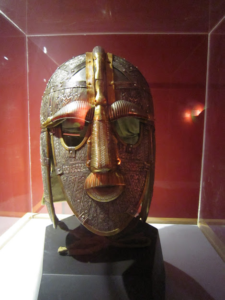
- Recognise how historical events are caused by other important past events and in turn have their own consequences.
- Begin the construction of a simple timeline from the beginning of the Stone Age in Britain to the arrival of the Normans in 1066 identifying and describing events in the order in which they occurred using a pre-existing scale of equidistant intervals.
- Describe and explain in basic terms some of the clues that help archaeologists reconstruct how people might have lived in the Stone Age.
- Contrast the ways in which most people in Britain were living at the end of the Stone Age compared with the beginning and explain some of the differences they observe.
- Explain why the Romans invaded Britain.
- Identify, describe and compare and contrast the many different types of stone monuments created in Britain during the Bronze Age and reach a simple judgement about what their purpose might have been.
- Describe the main features of Iron Age hill forts and offer reasons why so many were constructed across Britain.
- Explain why archaeologists believe Iron Age people made so many beautiful artefacts only to then throw them into rivers or bury them underground.
- Explain how we know about Anglo-Saxon life from the discovery of Sutton Hoo.
Year 4 History Learning Goal
By the end of Year 4 our children, working as young historians, will have demonstrated that they can use effectively the range of appropriate historical techniques, enquiry skills, contemporaneous evidence, fieldwork and appropriate subject vocabulary detailed in our schemes of work to:
- Complete the construction of a simple timeline from the beginning of the Stone Age in Britain to the arrival of the Normans in 1066 identifying and describing events in the order in which they occurred using a pre-existing scale of equidistant intervals.
- Explain why the discovery of the Vale of York Hoard dating from 927 in Britain was such an important archaeological find.
- Describe and explain why we know so much about the ships the Vikings built.
- Explain why the Ancient Maya chose to settle in Peten, how they adapted to this area and what this tells us about the kind of life they lived.
- Explain why the Ancient Maya abandoned their jungle cities.
- Through evaluating the artefacts of the Vale of York Hoard reach a judgement about what the different items tell us about life in Viking Britain.
- Explain why Viking Norsemen invaded Britain and reach a judgement about why they were desperate to stay;
- Explain who the key leaders of the Vikings were and evaluate who the greatest leader was.
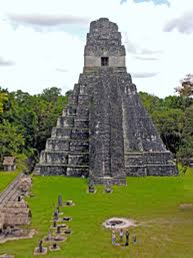
Year 5 History Learning Goal
By the end of Year 5 our children, working as young historians, will have demonstrated that they can use effectively the range of appropriate and specialised historical techniques, enquiry skills, contemporaneous evidence, fieldwork and subject vocabulary detailed in our schemes of work to:
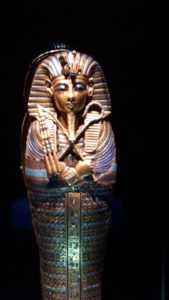
- Evaluate the range of artefactual evidence left behind by
- Consider the possible explanations about why the Egyptians were defeated by Alexander the Great and reach a judgement about which might be the most convincing.
- Compare and contrast the burial of Tutankhamun against the burial of other pharaohs and reach a judgement about why they differ.
- Explain why we know so much about how pharaohs lived following the discovery of Tutankhamun’s tomb compared to our previous knowledge.
- Compare and contrast how different historical periods have led to the abolishment of slavery and racism in America and reach a judgement about whether they consider these to be effective.
- Explain the effects of the Industrial Revolution on Waltham Abbey and evaluate the evidence available to reach a judgement as to whether the events were beneficial and how these impact upon local resides now.
- Construct a timeline relating to one of the civilizations studied, by creating their own equidistant scale to record its main events in the order that they occurred.
Year 6 History Learning Goal
By the end of Year 6 our children, working as young historians, will have demonstrated that they can use effectively the range of appropriate and specialised historical techniques, enquiry skills, contemporaneous evidence, fieldwork and subject vocabulary detailed in our schemes of work to:
- Construct more detailed oral and written historical narratives which describe and explain how and why particular events unfolded over time.
- Explain why Alexander the Great was successful in establishing an empire around the world and construct a timeline using an equidistant scale to record the chronology of the main events that occurred.
- Evaluate some of the advantages and disadvantages of this Empire both to Greece and its colonies and reach a judgement as to why it disappeared.
- Describe and explain how several aspects of national history are reflected in their own locality and evaluate and reach a judgement about their relative importance.
- Empathise with circumstances in Britain after the fall of Dunkirk in 1940 during World War II and reach a judgement, through critiquing a range of evidence, as to why Britain won the Battle of Britain.
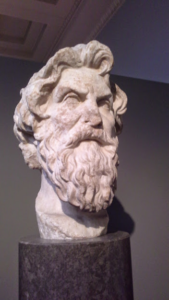
Long Term Plan








